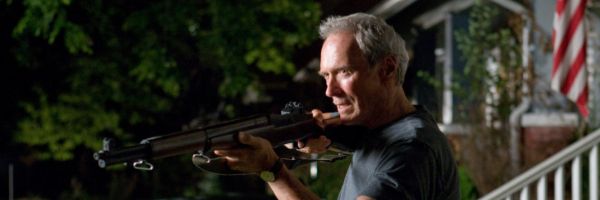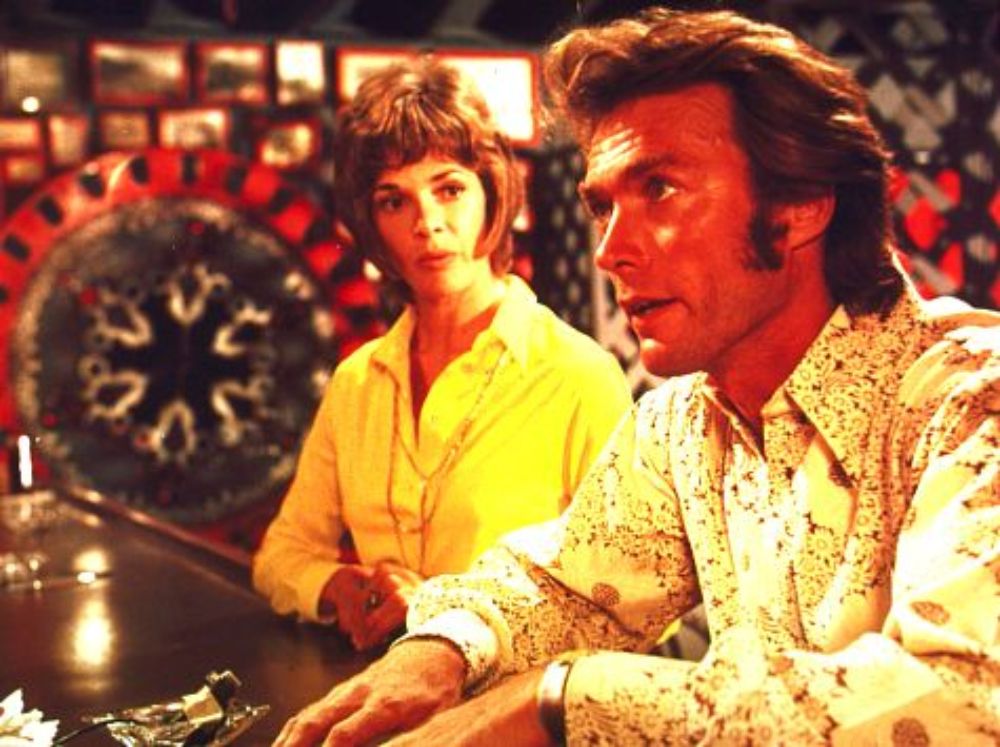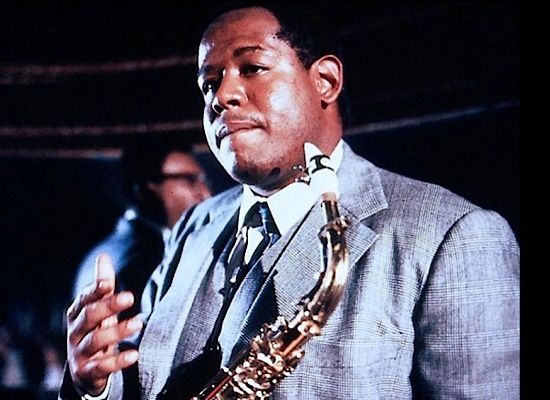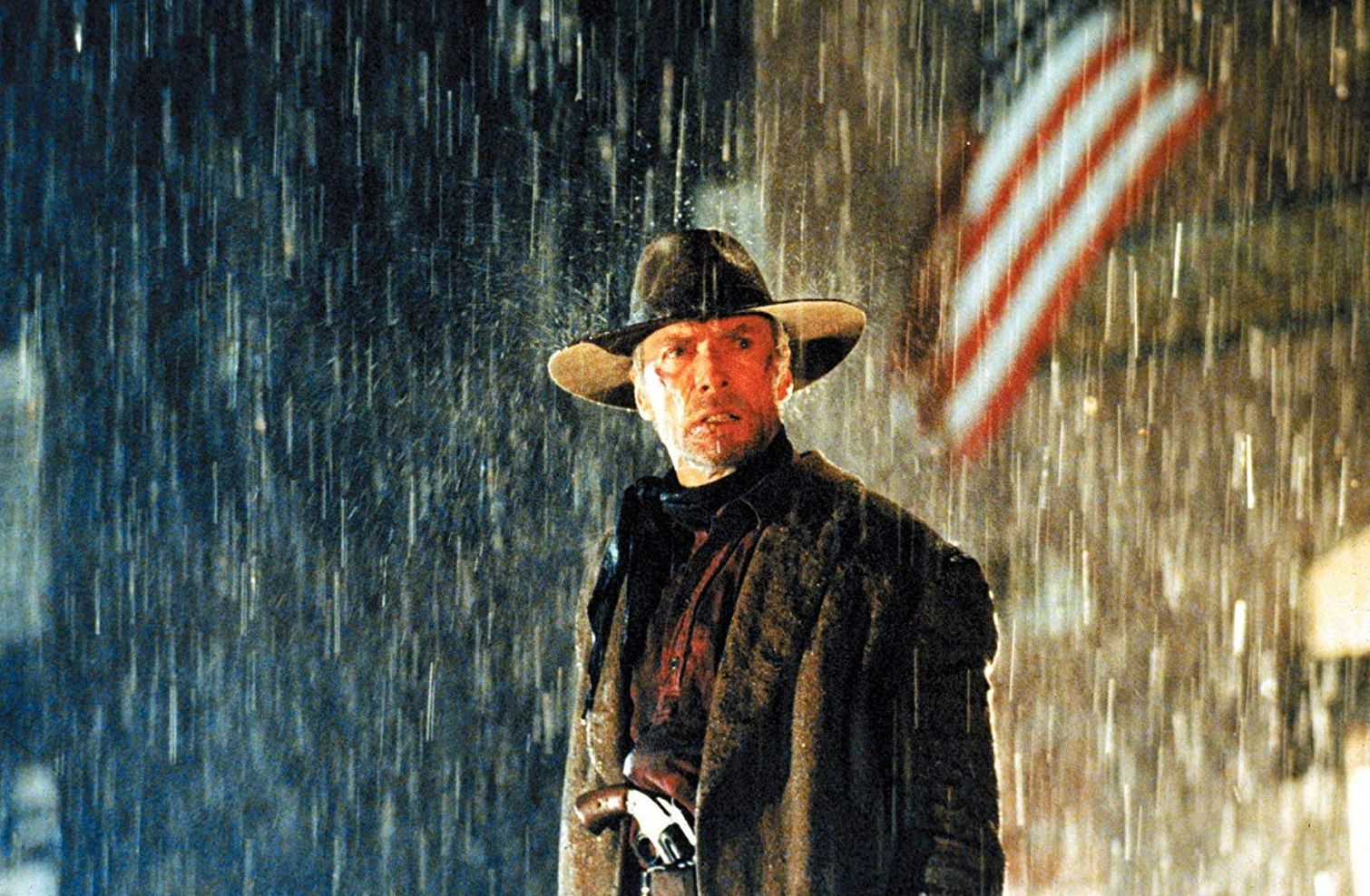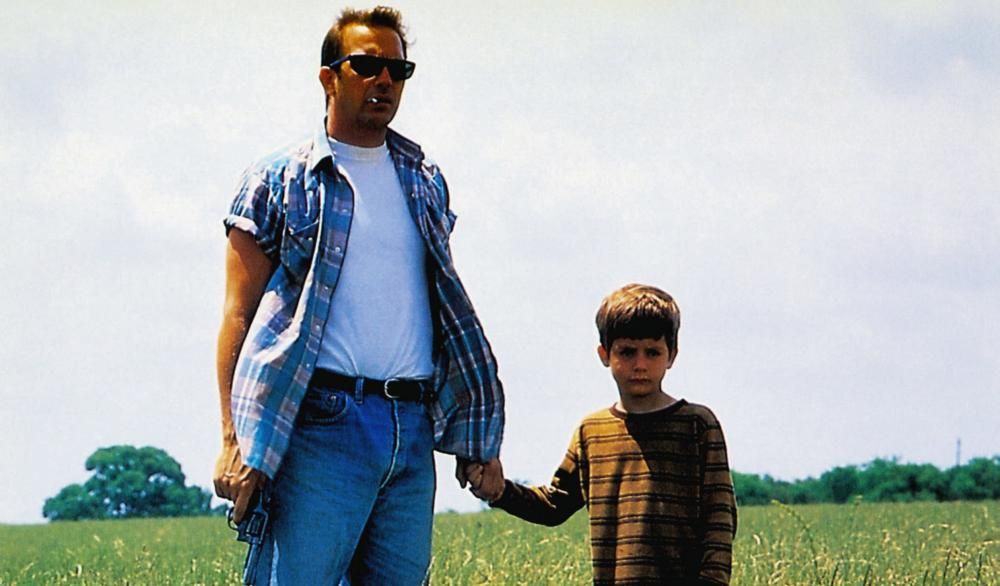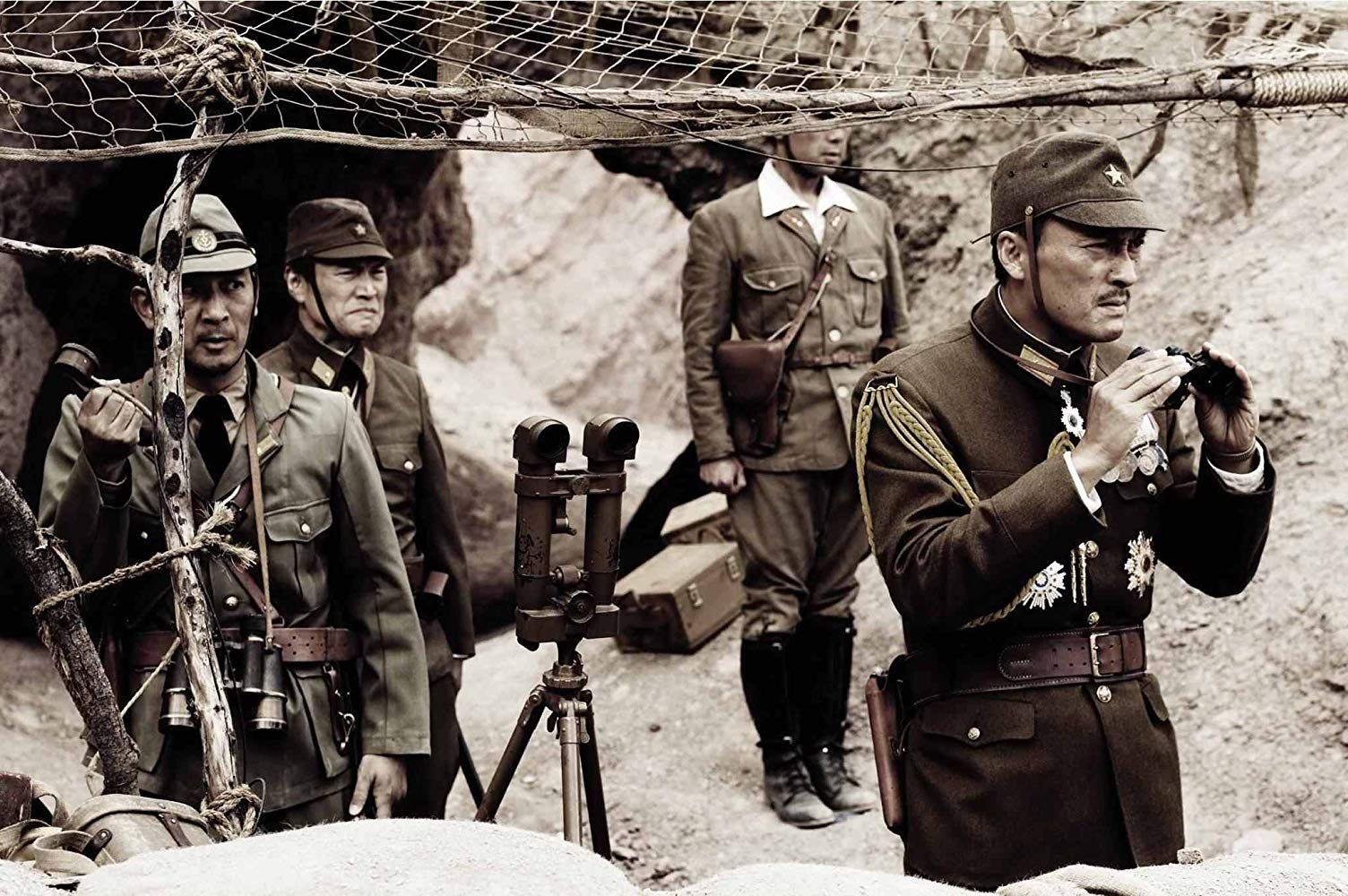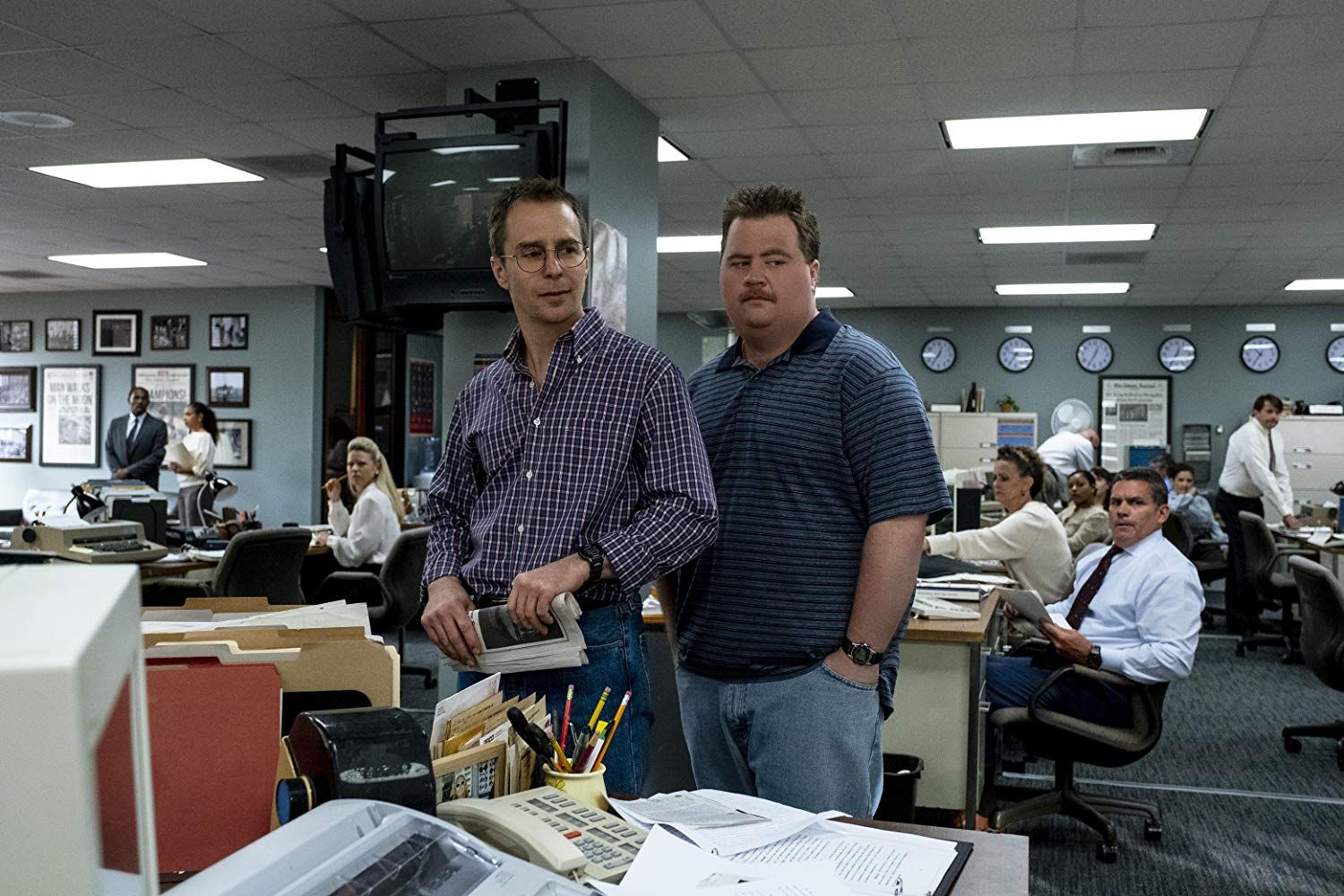If indeed every movie can be divided into either a comedy or a tragedy, the films of Clint Eastwood have favored one over the other, tenfold. Just over five months from now, Eastwood will celebrate his ninetieth birthday. It’s been a very long and storied career in film for the Hollywood icon, who began appearing in movies during the Eisenhower administration. Fans who fell in love with that scowl under the wide brim of a ten-gallon hat in the Rawhide series, and even more so in his true star-making turn, Sergio Leone’s A Fistful of Dollars, never could have imagined the sort of material he’d be drawn to from the other side of the camera.
As his new film, Richard Jewell, arrives in theaters, we’re left to wonder: will this one be his last? How many more movies does this man have in him? He’s somehow grown more prolific with age and, with that, his interest in interesting people hasn’t waned in the slightest. Rather, it’s come more into focus.
If we zoom out and attempt to observe a specific pattern or trend in his choices, does anything register at all? Are Eastwood the man and Eastwood the storyteller one in the same? That question can be asked of any artist. And the answer is usually a resounding ‘Yes.’ Art is expression, after all—an outlet to release the stuff inside that simply will not emerge in any other meaningful fashion.
Eastwood the director is an unusual breed. The king of the western (and the spaghetti western) in the 1960s, he first took the reins in 1971, directing himself in Play Misty For Me, a Fatal Attraction-esque thriller about an obsessed fan stalking a radio disc jockey. It was a departure of a movie for Eastwood, as would become his forte in the projects he would go on to direct. Each would be something different from whatever preceded it. Often directing himself, he’s chosen films that typically put him in some heroic role—a hard-nosed rebel, a mysterious drifter, a tough-talking cop, a tender lover. He also knows when to remain behind the camera, even if the temptation to perform has been present. To find some consistent element separating his better films from his lesser ones is a tall task. He’s made great movies he hasn’t appeared in, and great ones he has. He’s made biopics and potent contemporary dramas. He’s made war films, and political thrillers—even a methodically paced romance (The Bridges of Madison County). Eastwood is drawn to the non-fiction prestige drama. But he also loves fantasy, which is what the western generally is (and probably the best way to classify Space Cowboys).
Whether or not he’s evolved as a filmmaker is not easily observable. Though he’s won two Best Director Oscars, Eastwood has made just as many mediocre films as he has good ones, particularly of late. And now there’s Richard Jewell, which has afforded him another opportunity to delve into the afflicted soul. If you’ve seen the trailers, or if you know the true story, it becomes evident why this subject appealed to him. Because if there’s one constant in what beckons Clint Eastwood, complex human emotion is it. And that’s extraordinary, considering where he’s come from.
In 2003, while doing press for Mystic River, Eastwood told The Guardian, “But with this, really, I just wanted to tell a story about people, about conflicts, and about people overcoming obstacles in their lives.” Later in the interview, he said, “…for me personally, having made films for years and directed for 33 years, it just seems to me that I long for people who want to see a story and see character development.” It might be that simple, but identifying scripts with good stories and good characters is easier said than done. And that’s the first step for a director—choosing the right script. Then comes the even harder part: elevating the material. A good director turns the words that jump off the page into ones that fly off the screen. Story and character are always present in an Eastwood film. He attempts to get the most out of these qualities in everything he makes, some to greater effect than others.
The common denominator among those complex emotions he so loves is this one: sadness. His best movies are rife with it. As a younger man, the tough guy flicks had a certain appeal. Entering the mid-‘80s and beyond, his choices, while still eclectic, took on different themes and tones. He’d touched on the bittersweet in Honkytonk Man, but 1988’s Bird revealed that Eastwood’s sensibilities and tastes went far beyond what audiences were aware of. That film, a biopic on jazz saxophonist Charlie Parker (Forest Whitaker) was saturated in tragedy, as Eastwood told the tale of a man of great talent, burdened with great conflict until his untimely death.
His magnum opus came two movies later—another western that was decidedly not just another western. 1992’s Best Picture-winning Unforgiven turned the genre upside down, spurs spinning in the air. It’s a film so starkly juxtaposed to his earlier entries in the genre. If in the past, the western came off as fantasy, this one does the opposite. Killing a man isn’t as easy as it’s looked on screen before and, for the characters, it’s a painful endeavor. The mythology of the Wild West has a certain allure. In the film, that’s especially true for the Schofield Kid (Jaimz Woolvett). He later learns that consequences of such violent longings are severe. He invents tall tales about his gunfighting prowess, only to be confronted with reality near the end, making his first kill, and swearing off any notions of the lifestyle. He’ll never be the same, he realizes in the aftermath, having just gunned down a man who’d been sitting on the toilet. But Eastwood’s character—William Munny—knows all too well the feeling. He’s killed women and children, it is revealed, and he’s ready to kill again, having resigned himself to his eternal status. The film’s title applies to Munny. Though the killer within has been left in his wake, he’ll never shake these sins from his conscience. He’s guilty in this life and the next, agreeing with Gene Hackman’s Little Bill—just before he guns him down—that hell is where he’s headed.
Taking a life doesn’t come easy to Munny; he’s just good at it. “It’s a hell of a thing, killin’ a man,” he tells the Schofield Kid. “You take away all he’s got, and all he’s ever gonna have.” Unforgiven is a movie about regret. It is heavy, laden with impossible burdens to bear, set in a land where bad choices are inescapable. Munny cannot change what he’s done, though he wishes he could, wishes he were different. There is no glory in the west, Eastwood seems to be saying. There is only guilt.
As he tells it, the script by David Webb Peoples, which went largely unchanged, came to Eastwood more than a decade prior to the film seeing production. He may have had others he simply needed to make first. Or maybe he had to reach the point in his life where the material took on a more personal sort of resonance. Once the face of the genre, Unforgiven was, for Eastwood, a condemnation of all the things it champions. If he’s using it as some sort of metaphor, it speaks to one and all. Or is he being vulnerable himself? Does he regret his earlier work? Does he bear great shame for something he’s done in his personal life? Just what kind of expressionism is this?
Eastwood followed Unforgiven with A Perfect World the following year, a film that has since drifted into obscurity. Off the bat, you know tragedy is on the horizon in this one, as the film is set near Dallas in the days leading to the Kennedy assassination. Clint cast himself again, this time as a Texas Ranger chasing after an escaped convict (Kevin Costner), who has taken a young boy hostage. There’s more than meets the eye in the dynamic between the trio. This is a tale of fathers and sons, or rather, father figures and adolescence. Its themes are potent, and inherently somber. It is often the experiences of our youth that make us into the adults we become. That notion takes center stage in A Perfect World, leaving you pondering your own choices—the things that shaped you. And, if a father, the ways you’re influencing your children, whether you know it or not. Cycles repeat—the vicious ones more than the opposite.
Solid movies would follow, but the next great one came in 2003—the aforementioned Mystic River. This begun a five-year period as strong as any in Eastwood’s career. He churned out six films in that span: Mystic River, Million Dollar Baby (a Best Picture winner), Flags of Our Fathers, Letters from Iwo Jima (both in 2006), Changeling and Gran Torino (both in 2008). For a man in his mid to late 70s, this is an astounding workload. Beyond that, it’s a brilliant streak of movies covering a broad range of subjects, characters, and settings. Once again, the thing they have in common is their moods. They are heavy films with downbeat conclusions. Because character development is so vital to Eastwood, he makes sure to deliver that in spades. So when the sadness surfaces, it’s earned, and it’s felt.
And they’re tragedies through and through. Eastwood either starts with one, as in Mystic River and Changeling, and explores its ripple effects, builds toward one, as in Million Dollar Baby, or uses tragedy as a cloud hovering over the events, as in Gran Torino and the World War II companion pieces—Flags of Our Fathers and Letters from Iwo Jima.
Invictus is about triumph out of tragedy, and it’s a less memorable effort. American Sniper then zeroed in on the reverse—tragedy out of triumph. It’s a stronger piece, a careful examination of war’s devastating impact on the psyche. Both that film and Eastwood’s next—Sully—are nonfiction stories about modern American heroes. He cast a big name to lead each. But determining which character is more interesting between the two, or which story superior, is plainly evident. Eastwood executed both films well, but American Sniper was the stronger subject. That’s not a critique on Eastwood, but rather, an affirmation that his criteria for judging a project is quite apt.
Eastwood works fast on set, often using the first or second take, which gives everyone there the feeling that things are moving forward. And then he’ll move forward himself, starting another project without any sort of break, if he likes what he’s got before him. He saw the script for Million Dollar Baby while in post for Mystic River and decided he wanted to do it. When asked when, he opted for right away. Clint is a blunt man. He knows what appeals to him, and he seizes it without hesitation. Perhaps he’s motivated by regret, like his William Munny character. Maybe there’s that one story in him he’s got to get out there, lest he’ll think he’s missed something he can never get back.
Richard Jewell marks a seventh consecutive Eastwood film ripped from 20th or 21st century American headlines and history books. And he’s faltered here in the majority of them. J. Edgar is a slog. Jersey Boys a sullen bore. The aforementioned Sully was a movie that didn’t need to be made. And The 15:17 to Paris finally exposed the dangers of speeding through a production. Surely those performances would have been better had Eastwood worked with his actors more intently (or cast real ones). Though last year’s The Mule was better than average, it’s still in the bottom tier of his many works.
Which leaves us with Richard Jewell, perhaps Eastwood’s swan song, though he’s defied that designation many times before. It might just be the return to form he’s shot at and missed more often than not over the past decade. Not surprisingly, the director, who has been trying to tell this story for the past five years, called it “a great American tragedy” when interviewed by the Associated Press. It isn’t that he’s specifically looking for somber or upsetting material; he just looks for a good script, which is what he’s always said. Ironically for the man known for his grimaces and growls on screen, what speaks to him as a person is a broader range of human emotion.
In that same interview, Eastwood said, “Stories come along. And stories are the king. And you go ahead and try to tell them the best you can. But it's not just not an intellectual art form. It's an emotional art form.” That it is. And nothing best sums up his body of work—the strong ones, anyway—better than that. An impressionable Clint Eastwood movie is going to be an emotional affair, thanks largely to interesting characters engulfed in a good story’s tragedy.

